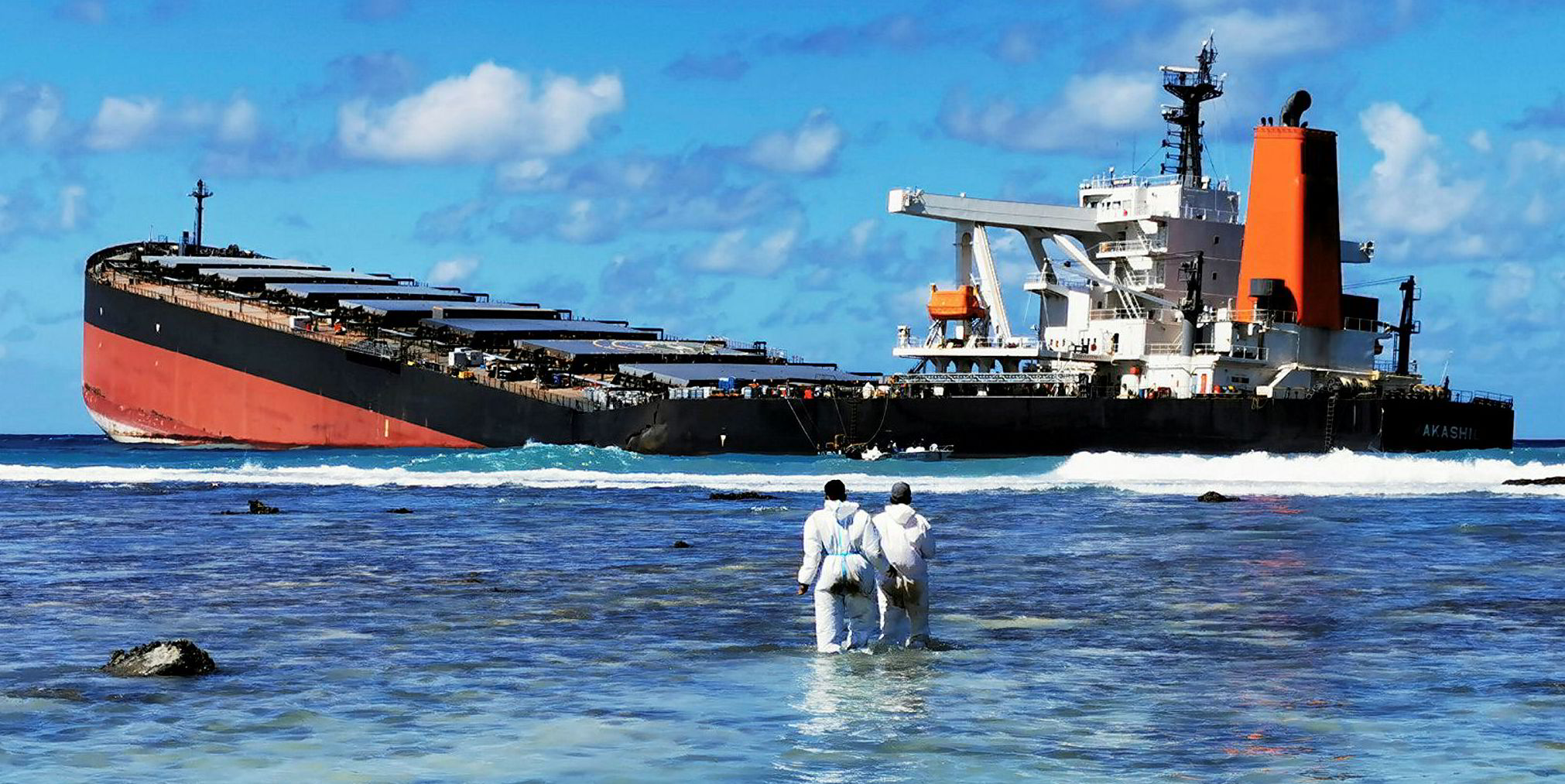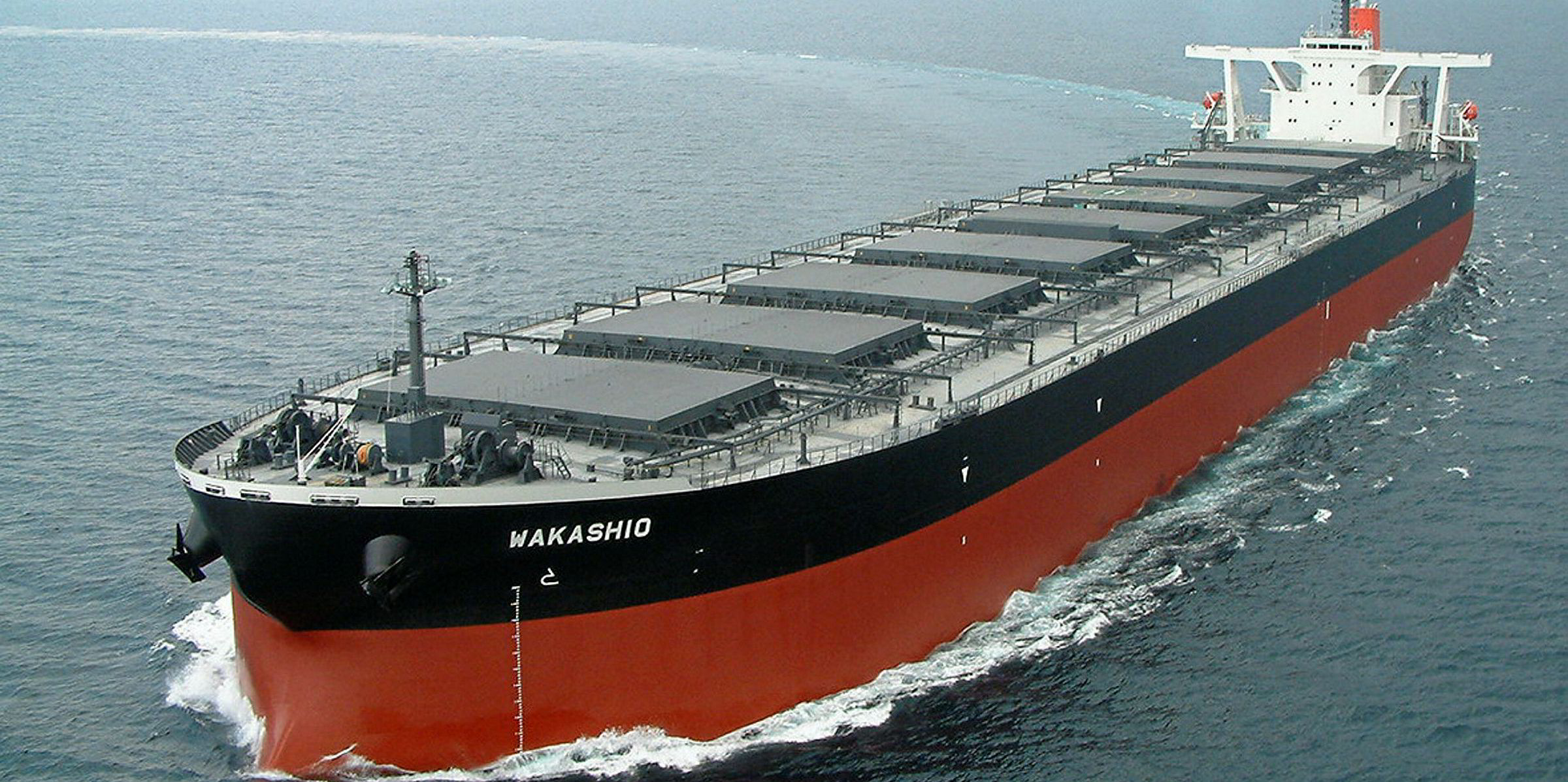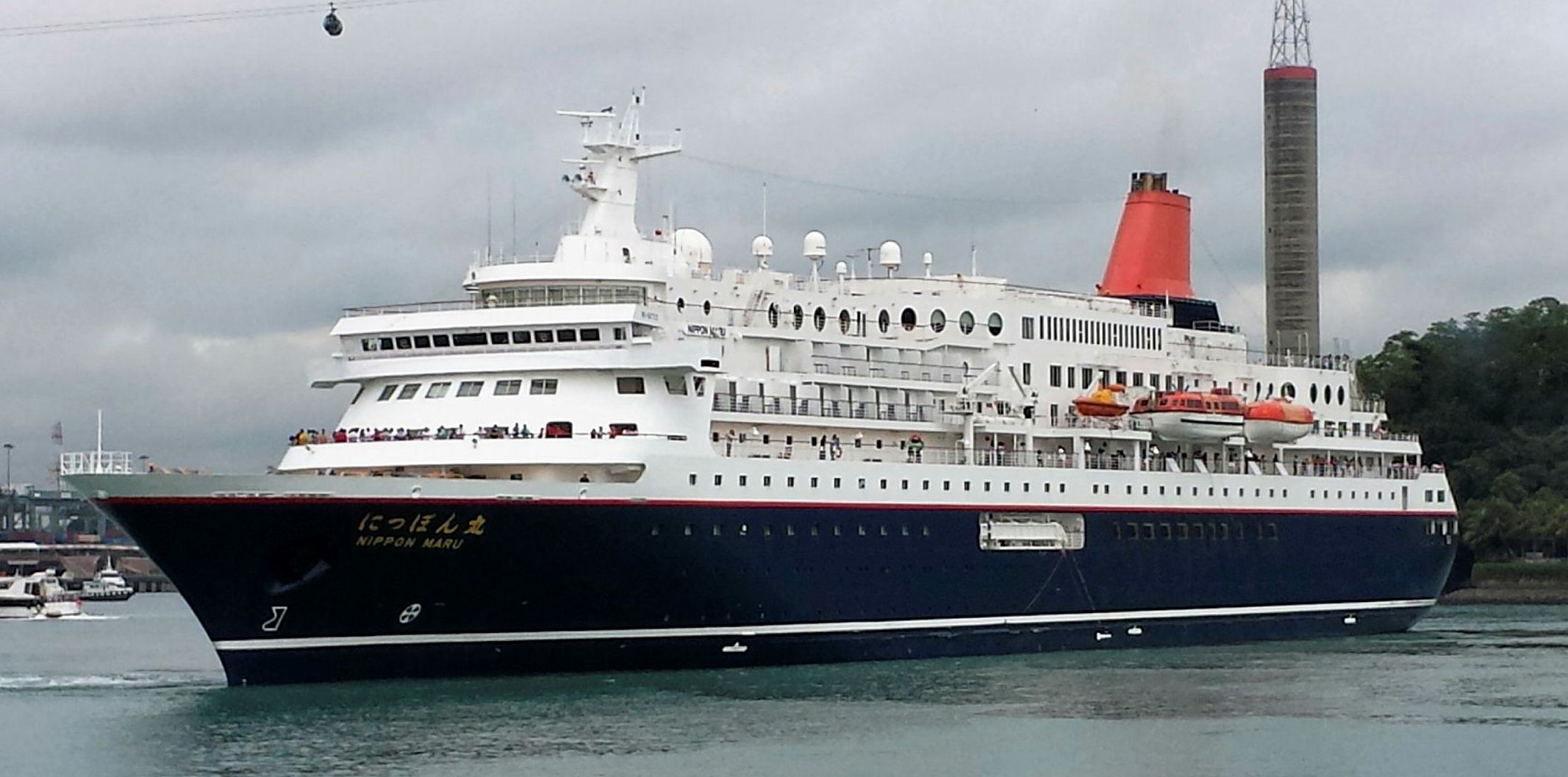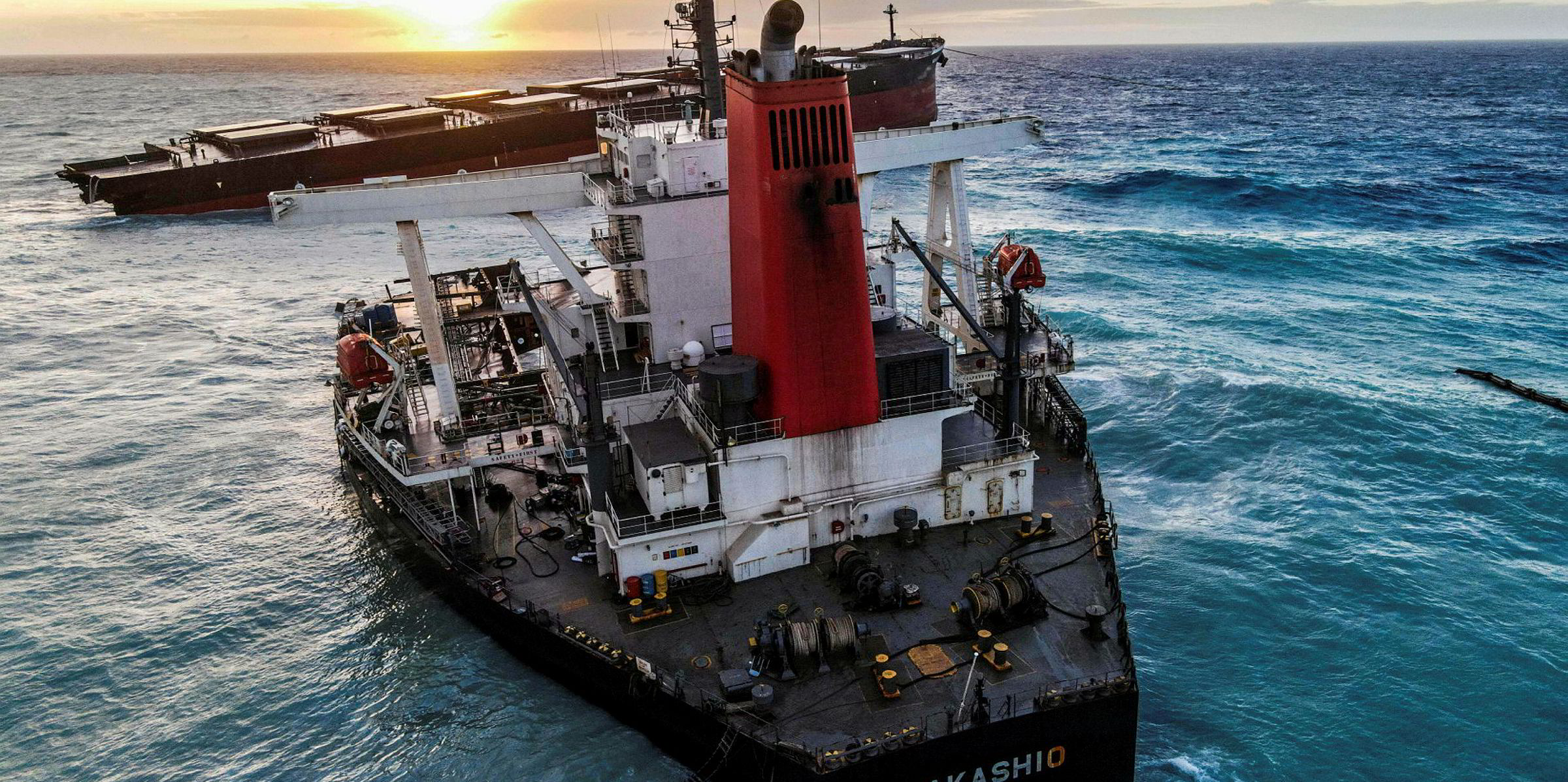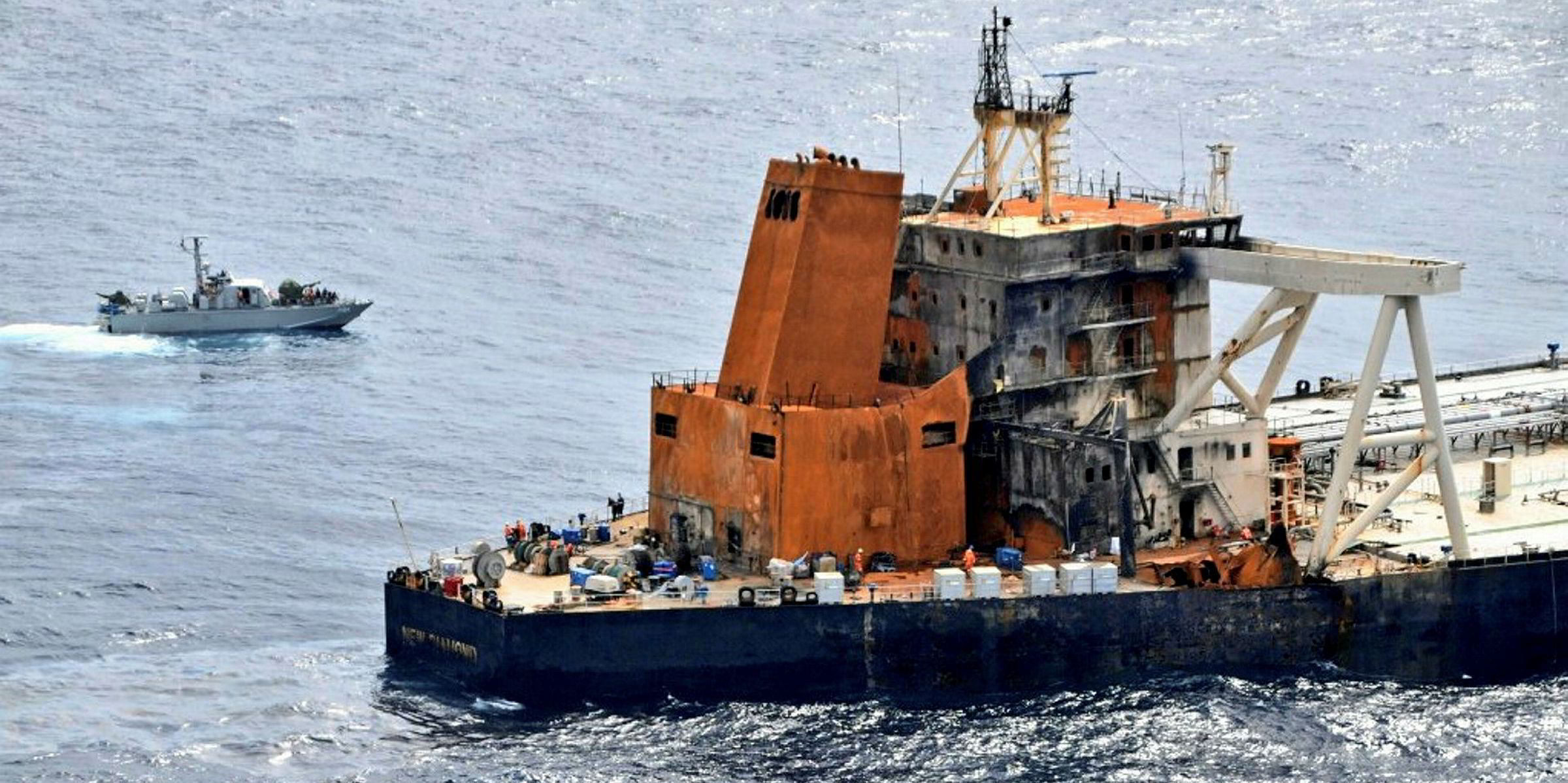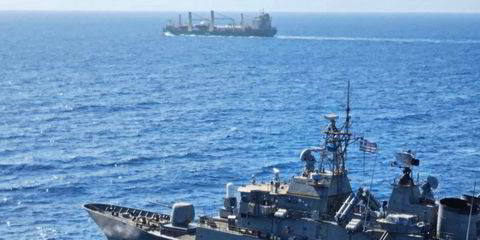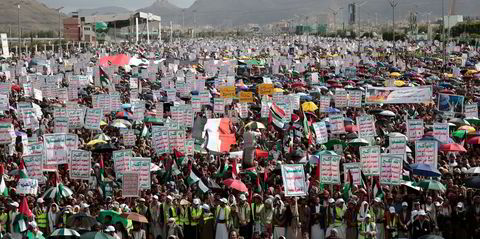Shinzo Abe, Japan’s longest-serving prime minister, is on his way out, but the nation’s traditional tight-knit relationship between industry and government looks like surviving this landmark change of leadership.
In the latest example, Japan’s government and shipping and insurance industries are coming together to address the oil-spill compensation mess created by the stranding of the 203,000-dwt Wakashio (built 2007).
The bulker grounded on the paradise island of Mauritius in July before spilling 1,000 tonnes of fuel oil onto its shores and breaking up.
Legally, as it is a Panamanian-registered ship, this accident should not involve Japan. But the Wakashio was not only owned and operated by Japanese shipping companies, it had spent its trading life carrying iron ore for Japanese steel mills, while insured by a Japanese protection and indemnity mutual.
'Unprecedented' assistance
Tokyo has viewed this as a national problem.
So last week, Japan’s foreign affairs minister, Toshimitsu Motegi, phoned Mauritian Prime Minister Pravind Jugnauth to offer “unprecedented” assistance to help the nation recover from the disaster.
Mitsui OSK Lines, which chartered the vessel but has no legal or financial responsibility for the accident, has also been pulling out all the stops to help.
It has set up a ¥1bn ($9.4m) fund, sent out experts and equipment, and offered help to the island’s fishing industry. It has even scheduled its 22,400-gt cruiseship Nippon Maru (built 1990) to trade to Mauritius from 2022 to boost tourism. It has also drawn up long-term plans to help the coral reefs and mangroves recover.
Legal entitlement
So why are MOL and the Japanese government being so proactive when the legal and financial liability lies with Japan P&I Club and the ship’s owner, the small regional company Nagashiki Shipping?
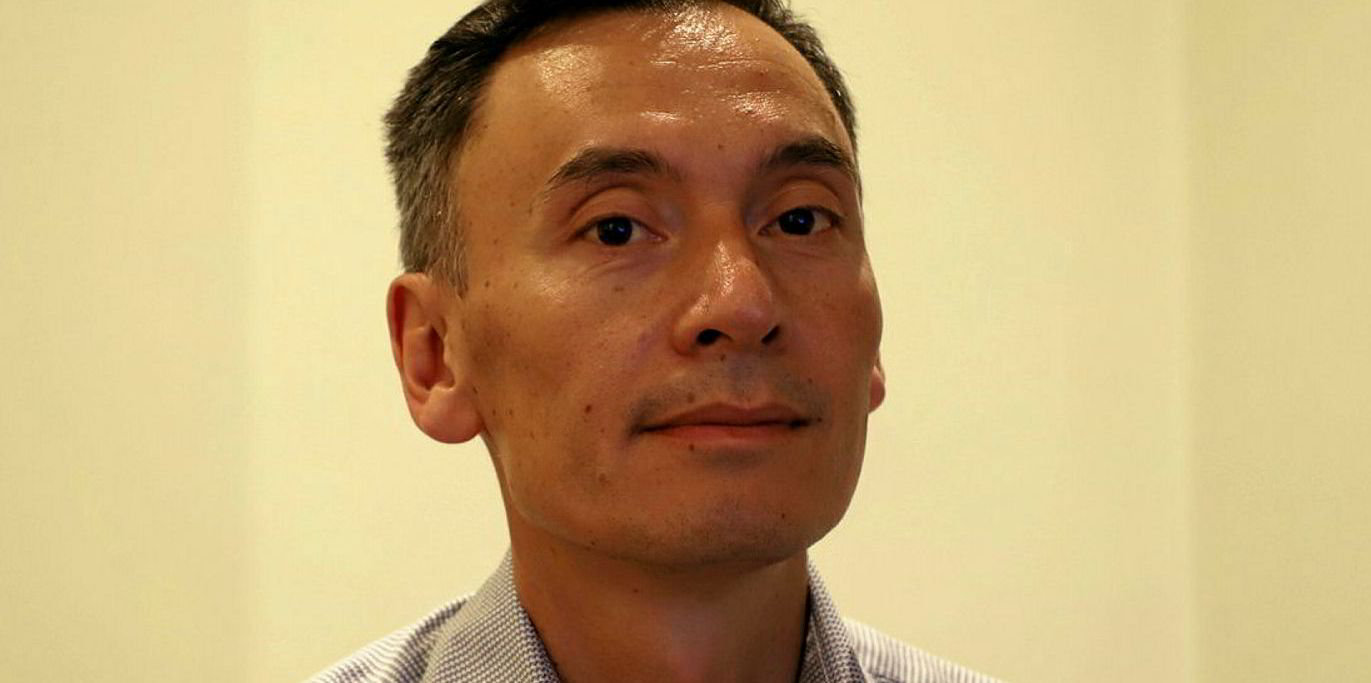
Limitation of liability laws that protect shipowners mean Mauritius is legally entitled to only a fraction of the potential claims that will result from this spill. So the Japanese government and MOL are trying to find a way to reduce the environmental and economic impact of the disaster while respecting international limitation of liability laws.
Shipowner Nagashiki does not have the resources to act, so MOL, one of the largest shipping companies in the world, as charterer, has had to step forward.
The claims that are subject to the legal limitation are mostly third-party liability claims — principally from damage to fishing, tourism and the environment — and that is where Japan is targeting its aid.
The impact of Covid-19 had hit the local tourism industry long before the Wakashio spilled fuel oil onto Mauritius’ beaches. Claims from this sector could be less than they would have been before the pandemic.
The initial fishing industry claims are estimated to be $30m. The impact on the environment is not as great as first feared but is still going to be costly.
Resetting liability levels
Most of the $500m this disaster is expected to cost insurers will involve emergency response, salvage, pollution prevention and wreck removal, which are not covered by the limitation of liability laws and can be paid in full by Japan P&I and hull insurers.
Whether the package of aid being put together by Japan Inc can rescue the situation remains to be seen.
The limitation of liability was particularly low in Mauritius’ case because it had not updated limitation levels set under the Convention on Limitation of Liability for Maritime Claims. It is still committed to levels set more than four decades ago.
Developing countries clearly need more help and encouragement to keep up with developments in international conventions.
Limitation of liability levels also need to be reset to reflect the increasing costs of maritime casualties that the Wakashio has demonstrated.
